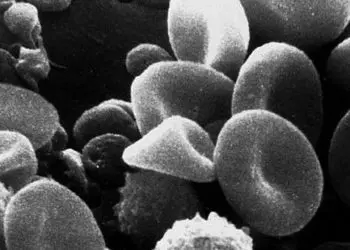Biomarkers of Alzheimer’s disease detected as early as 18 years prior to diagnosis
1. In this case-control study, cerebrospinal fluid (CSF) biomarkers of Alzheimer’s disease increased during the decline of cognitive function.
2. The biomarkers began changing as early as 18 years before the diagnosis.
Evidence Rating Level: 2 (Good)
Study Rundown: Preclinical Alzheimer’s disease has been identified as the presence of cognitive function with abnormal levels of CSF biomarkers. After the preclinical stage, the disease progresses with mild cognitive decline, which then sometimes develops into clinically apparent dementia. Biomarker changes can begin 15 to 20 years before individuals develop clinical symptoms. Some biomarker indications include amyloid-beta (Aβ) levels, total tau, phosphorylated tau 181, and neurofilament light chain (NfL). Past studies have had several limitations, specifically with the underrepresentation of Asian populations. As a result, this study examined a cohort from a study in the China Cognition and Aging Study (COAST). The times when the biomarkers began changing ranged from 18 years for CSF Aβ42 concentration to six years for cognitive decline. The CSF biomarker concentrations started accelerating and were then followed by slowing. Since the researchers required a minimum of three follow-up visits for enrollment, a reduction in sample size ultimately affected the generalizability of the results and limited the study. Overall, the levels of CSF biomarkers initially increased and then slowed in the Alzheimer’s group as their cognitive impairment worsened.
Click here to read this study in the NEJM
In-Depth [case-control]: This case-control study enrolled participants between January and June of 2000. Individuals who were between the ages of 45 and 65 and had no cognitive defects were included, which was determined by a Clinical Dementia Rating (CDR) of 0. Participants were required to have a Hachinski ischemic score, indicating they were more likely to develop Alzheimer’s disease than vascular dementia. Follow-ups were done every two to three years, the most recent being in 2020. The groups had similar levels of CSF biomarkers, cognitive scores, and hippocampal volumes. The mean follow-up time was 19.9 years (interquartile range, 19.5 to 20.2). Some data was missing, but overall, it only accounted for less than 16% of the participants in each group. When comparing individuals who developed Alzheimer’s to those who did not, the level of CSF Aβ42 differed for the previous 18 years to diagnosis. The difference in mean values was -59.13 pg per milliliter (95% Confidence Interval [CI], -108.08 to -10.18). Another difference observed between the groups was in the ratio of CSF Aβ42 to Aβ40, which began appearing 14 years before a diagnosis. The difference in mean values was -0.01 pg per milliliter (95% CI, -0.02 to -0.001). The groups also had differing CSF phosphorylated tau 181 levels and total tau concentrations. Respectively, these began 11 years and 10 years before an Alzheimer’s diagnosis. The mean differences were 7.10 pg per milliliter (95% CI, 1.10 to 13.10) for phosphorylated tau 181 and 87.10 pg per milliliter (95% CI, 45.40 to 129.10) for total tau concentration. Cognitive decline, which occurred six years before diagnosis, was the last biomarker to diverge. Overall, when cognitive impairment worsened, CSF biomarker levels accelerated and then slowed in the Alzheimer’s group compared to the control group.
Image: PD
©2024 2 Minute Medicine, Inc. All rights reserved. No works may be reproduced without expressed written consent from 2 Minute Medicine, Inc. Inquire about licensing here. No article should be construed as medical advice and is not intended as such by the authors or by 2 Minute Medicine, Inc.







